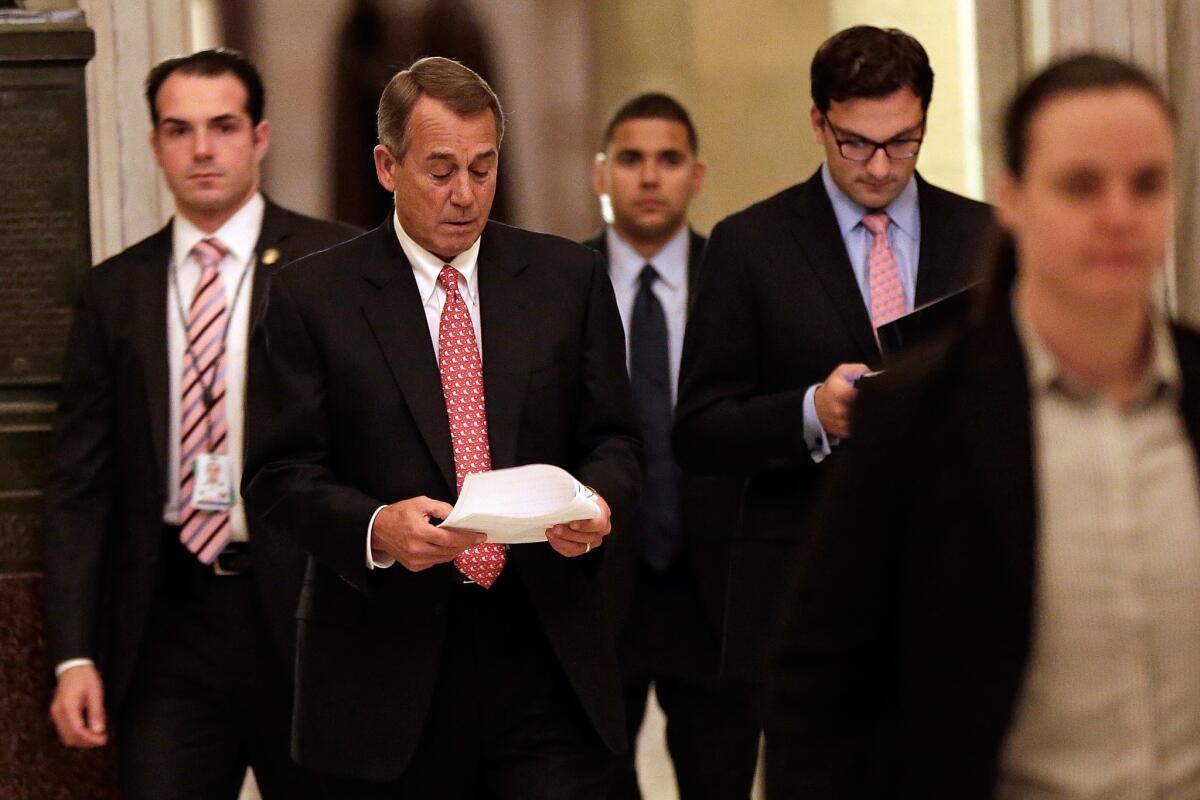House approves bipartisan budget accord

- Share via
WASHINGTON — House Republicans, with help from Democrats, passed an $85-billion budget deal Thursday that falls short of conservative small-government goals but represents the first potential cease-fire in the budget battles that have left Congress lurching from one fiscal crisis to another.
Approval of the compromise represents a victory for House Speaker John A. Boehner (R-Ohio), who appears to have regained momentary control over his rebellious majority despite the opposition of influential conservative groups, as well as for Rep. Paul D. Ryan (R-Wis.), a potential Republican presidential hopeful who put his political capital on the line to craft the deal.
“It’s not everything that we wanted, but it advances conservative policy and moves us in the right direction,” Boehner said.
The House approved the measure 332 to 94, over the objection of 62 Republicans, mostly hard-line conservatives, and 31 Democrats.
The deal, which lessens the risk of a government shutdown in the new year, is expected to win easy approval in the Senate, despite continued opposition from the party’s most conservative wing.
PHOTOS: The battle over Obamacare
Sen. Marco Rubio (R-Fla.), another potential presidential contender, blasted the agreement, saying it “continues Washington’s irresponsible budgeting decisions by spending more money than the government takes in.”
The $85-billion accord increases spending levels for 2014 and 2015 by reversing $63 billion of the automatic “sequester” cuts to the Defense Department and social programs that many lawmakers, except the most hard-line conservatives, opposed. It would also apply more than $22 billion toward deficit reduction.
The additional spending would be paid for by policy changes over the next decade that include cutting the pensions of new federal workers and younger, uninjured military retirees, and imposing new fees, including those on airline travel. The deal avoids new taxes, as Republicans insisted.
A late provision was tacked on to temporarily prevent a scheduled cut in pay for doctors who treat Medicare patients.
Final approval is expected in the new year before funding for the government runs out, which would risk another shutdown, on Jan. 15.
Passage was not without a last-minute floor battle as Democrats protested the exclusion of long-term unemployment insurance for 1 million jobless Americans, who will lose benefits Dec. 28.
Senate Majority Leader Harry Reid (D-Nev.) vowed that extending jobless aid would be the first item for consideration when Congress reconvenes in the new year.
Follow Politics Now on Twitter and Facebook
Twitter: @LisaMascaroinDC
More to Read
Sign up for Essential California
The most important California stories and recommendations in your inbox every morning.
You may occasionally receive promotional content from the Los Angeles Times.











